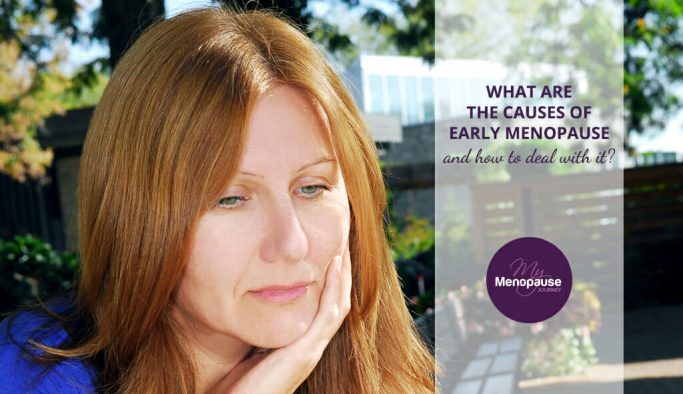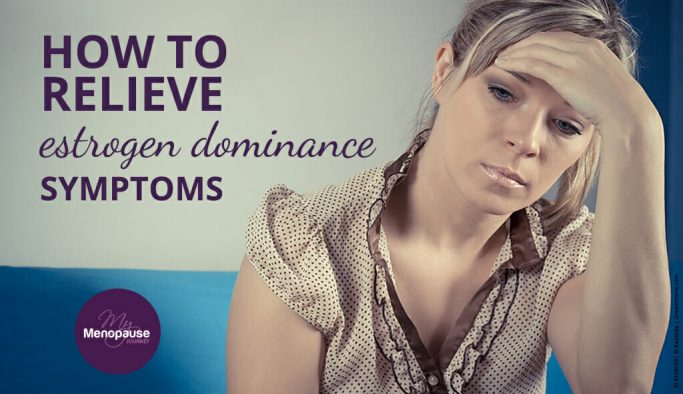Oh, menopause! It’s not all glitter and glow, but guess what? It doesn’t have to be a rough and rocky ride either! If you are armed with the right info, you can smooth out the bumps along the way as you navigate this journey!
Yes, the changes that come with midlife can be overwhelming. I must admit, menopause hit me like a surprise party — one I wasn’t exactly thrilled to attend. There I was, feeling stuck, lonely and not quite the version of me I knew and loved.
But then, I had my lightbulb moment. I decided it was time to grab the bull by the horns, dive headfirst into a sea of menopause wisdom, and boy, did it change my game. That’s how “My Menopause Journey” was born!
So, to all my ladies out there, let me toss this insightful article your way. It’s packed with valuable info and practical advice to help you rock and navigate menopause just like I did!
What is Menopause?
“Menopause”. Some immediately think of hot flashes. Others think of mood swings. And most women know it’s our fertility doors saying, “That’s it, we’re closed. For good.” While these beliefs about menopause are true, they may not tell the entire story.
Menopause is a natural, transitional phase in women. It’s a time when hormonal levels change, metabolism shifts and body functions need more support! The whole menopause transition involves three stages: Perimenopause (which begins 8-10 years before menstruation ceases), menopause (which starts after not having periods for a full 12 months) and postmenopause (which women enter, on average, at 55).


Let me walk you through the three different stages of menopause:
Perimenopause
Okay, picture this: You’re in the prime of your life, navigating your 30s or 40s, thinking menopause is a distant bridge to cross. But surprise — perimenopause can actually kick off at this age!
Am I saying it’s the end of your prime season? Of course not.
But the thing is, many women experience hormone-related symptoms without knowing they are in perimenopause. And so, they end up popping pills or suspecting all sorts of health issues, when it’s actually just the hormones protesting, “We need balance!”.
Perimenopause is like the opening act for menopause. It sets the stage 8 to 10 years before your period decides to take its final bow.
Despite what many think, estrogen isn’t the first hormone to jump ship during perimenopause — it’s progesterone. While estrogen does dip eventually, progesterone takes a nosedive, leaving estrogen to run wild. It’s like having a seesaw where one side suddenly drops, throwing everything off balance!
And when estrogen gets the upper hand over progesterone? Welcome to the world of estrogen dominance.
ED is an imbalance between the ideal estrogen and progesterone ratio. With little progesterone (relaxing hormone) to neutralize the effects of estrogen (excitatory hormone), certain body processes may become “hyperactivated” — causing many of your symptoms:
- Mood Swings
- Hot Flashes
- Night Sweats
- Weight Gain
- Anxiety and Depression
- Sleep Disturbances
- Brain Fog
- Dry Skin
- Fatigue
- Low Libido
- Bloating
- Headaches
While you’re still getting menses, ED may also lead to shorter menstrual periods, severe PMS and abnormal bleeding.
But then again, entering perimenopause does not automatically mean you will get all these symptoms! Oh, no no, there’s more to womanhood than living in misery as we age.
Besides the natural fluctuations and decline in our hormones, our lifestyle also plays a huge role in hormonal health. The foods we eat, how active we live, our stress levels, the environmental toxins and synthetic hormones we are exposed to — they can either boost or mess with your hormones.
Therefore, it still boils down to how attentive you are to your changing needs and how well you look after your body!
Yes, some things are inevitable. We’re built to have declining hormones while aging — that’s just the physiology of it. But this shouldn’t stop us from building our health and taking proactive steps to flourish!
Menopause is NOT a disease.
Why live in “survival mode” when there are countless ways to thrive?
Menopause
Now, you’ve reached the menopause bridge, which happens after 12 full months of not having periods. The average age for women to enter menopause is 52.
But what exactly does this “bridge” look like?
During menopause, your ovaries start to falter. Egg production becomes on and off, and ovulation diminishes. This further affects estrogen and progesterone levels because their production depends on ovulation!
As a result, your body will mainly depend on the scant amounts of hormones produced by the adrenal glands and fatty tissues.
The adrenals produce the hormone DHEA, which then converts to active sex hormones. What an intelligent body we have!
Most symptoms in perimenopause will remain present during menopause, along with new ones, including:
And where does the menopause bridge take us after we cross it?
To the land of postmenopause!
Postmenopause
I know I said the menopause transition has three “stages”, but postmenopause isn’t really just a phase — it’s a lifelong journey!
In postmenopause, hormones gradually settle at very low levels. This gives some women a sense of relief as the usual “highs and lows” start to go away.
However, it’s still essential to take good care of your health in postmenopause. Not only to prevent several health risks that come with the cessation of hormone production, but more importantly, for you to enjoy your golden years!
What issues can we prevent in postmenopause if we prioritize our health?
Oh, a lot. There’s osteoporosis, thyroid problems, urinary tract infections, cardiovascular problems, gut problems and metabolic disorders.
Is Menopause the Same for All Women?
In terms of symptoms, the menopause transition varies widely from one woman to another. Some have a few symptoms, while others experience mild to severe discomforts. Some deal with the symptoms briefly, while others have them for several years. Ultimately, it’s the knowledge, overall lifestyle and personal perspective that influence one’s menopause experience!
There’s a reason why we’ve been using “on average” in the previous section. And that’s because every woman’s menopause journey is unique.
Indeed, this life transition is a trip without a fixed starting and ending point — and can have many possible diversions. But the beauty of it? You get to be the DRIVER of your own journey!
In Japan and other Asian countries, women reported having milder and less frequent menopause symptoms. Researchers mainly attributed these findings to Asians’ nutrient-dense diet and active lifestyle.
Another study showed that women from the U.S., U.K., France and Canada had more symptoms compared to women from other countries. But you might be surprised that this had nothing to do with diet or lifestyle (according to the study). It’s because of how the women viewed menopause!
According to Dr. Mary Jane Minkin, a Professor in Obstetrics, Gynecology and Reproductive Health at Yale Medical School, in societies where aging is viewed positively as “being wiser and better”, symptoms were significantly less bothersome.
On the flip side, menopause symptoms tend to become more felt (both in intensity and frequency) in societies where aging was viewed negatively.
Now, I don’t want to sound detached or unrealistic here… I do acknowledge how challenging menopause can be. I myself had to do lots of trials and errors before finally figuring out what habits work best for me!
But I’d like to drive you home to the point that we now have an abundance of information. “Lacking knowledge” is almost the least possible reason for us to not know how to build our midlife health!
Also, our body always sends us significant clues. Those symptoms are hints! That’s why it’s important that we listen and feel what our body is trying to tell us.
Without a doubt, our diet, lifestyle and views on aging truly make a huge difference. Top it off with the right knowledge and tools to address and manage symptoms — and you’re about to TRANSFORM YOUR MIDLIFE JOURNEY INTO A PHENOMENAL ONE!
How Does Stress Affect Women’s Menopause Experience?
Being constantly stressed triggers the release of our fight-or-flight hormones, including cortisol and adrenaline. When these stress hormones are always in elevated levels, they slow down or suppress the production of our key female hormones. In turn, hormonal fluctuations worsen, and symptoms become more aggravated.
Let’s not get it twisted, though — stress is a normal bodily response to any perceived threat or danger. Our ever-clever body releases cortisol and adrenaline to alert our mind and body! These stress responders increase blood flow and heighten our senses to help us deal with a situation.
But chronic stress is a whole different story. Think of it like pulling the emergency alarm in your internal system — constantly! If your stress hormones are always working on red alert, they can take a toll on your overall hormonal balance. Not to mention that chronic stress also affects other vital processes in the body!
Additionally, chronic stress may cause early menopause. This early-onset menopause can happen to women, as early as in their 20s and 30s.
If you have early menopause, your ovaries stop working, leading to a sudden drop in hormone levels. This affects your ability to get pregnant because you’re not ovulating any longer. However, there’s still a chance — unless you’ve gone 12 consecutive months without a menstrual period.
Midlife is the best time to re-evaluate your “battles”. Try to let go of tasks, activities and relationships that no longer serve your well-being! Slow down, give your body a break and find ways to foster inner peace!
Menopause is The Perfect Time to Focus on YOU!
13 Hacks to Manage Menopause Symptoms Effectively!
If you haven’t already, take time exploring some thoughtfully written articles on my site. It is packed with practical tips and wisdom on managing menopause symptoms like a pro!
For now, let me give you a quick list of lifestyle hacks!
For a smoother midlife journey, it’s best to:
- Go organic! Ditch everything processed and go for more natural, whole foods. Make sure you’re buying foods free from pesticides, synthetic hormones, antibiotics and other harmful chemicals! As much as possible, buy produce in season and in bulk.
- Eat more hormone-balancing foods! Make superfoods, adaptogenic and phytoestrogenic herbs part of your diet. They are rich in nutrients, anti-inflammatory and antioxidant properties that help promote hormonal balance!
- Avoid triggers! Gluten, dairy and soy are among the common ingredients that trigger sensitivities and intolerances. You might also be sensitive to other ingredients — depending on what your gut can and cannot tolerate! Keeping a food diary is your best tool for this! Make sure you’re well-aware of your triggers because a healthy gut is key to optimal nutrient absorption.
- Keep your gut microbiome balanced! Friendly bacteria are vital little workers in metabolizing our hormones. They also help balance blood sugar, promote better mood and strengthen your natural immunity! Maintain a healthy gut with probiotics, prebiotics, spirulina and chlorella in your diet!
- Get quality, uninterrupted sleep! Our glands produce hormones when we’re sleeping. Getting at least 7 to 8 hours of restful sleep is the way to go!
- Move more! Have fun with varied daily activities! It can be light exercises, such as going for walks, yoga and Pilates. For women who already exercise regularly, strength training and HIIT are great, too! But again, always listen to what your body needs. Some days, you would want to go for the lighter routines to avoid overtraining (which isn’t good for your hormones)!
- Beware of environmental toxins! Lessen toxin exposure by choosing natural and organic products. Be mindful of products that contain BPA, phthalates, radon, lead and mercury! These chemicals hide in many home products, personal care items and even in food.
- Keep insulin and glucose levels at bay! Hormonal imbalances offset how our cells respond to insulin — a hormone that lets glucose into our cells. When glucose isn’t transported inside our cells, our risk for insulin resistance, obesity and diabetes eventually increases. Discover natural ways to maintain healthy insulin and glucose levels in my article!
- Maintain thyroid health! Hypothyroidism is another common health issue in perimenopausal women. Make sure you get enough thyroid-boosting nutrients in your diet!
- Back up your adrenal glands! You’ve learned that our adrenal glands are our lifesavers when our ovaries start faltering. Support your adrenals by managing stress better and lowering your sugar intake! Consuming vitamin C, vitamin B5 and chromium-rich foods can also help!
- Make deep breathing a habit! Deep breathing is a great (and almost instant) tool to calm down and destress. Breathe in, expand your diaphragm and use your stomach muscles to breathe out. Deep breathing is best done slowly — and daily!
- Take charge of your thoughts! How you think can change the course of your midlife journey. Even the studies have showed how one’s perspective can directly influence menopause symptoms! So, try to be positive as much as you can. Release any emotional burdens that have been weighing you down!
- Seek support from loved ones! Let your family, friends, colleagues and your spouse understand what you’re going through. It’s okay not to share the nitty-gritty, just share what needs to be understood. A warm hug and a soft pat on the shoulder can go a long way! We’re never alone on this midlife journey!
Are There Tests to Confirm You’re in Menopause?
Changes in menstrual patterns and experiencing other common symptoms are often enough to indicate menopause onset. Your healthcare provider can also run blood or urine tests to determine levels of estradiol, follicle-stimulating hormone (FSH) and luteinizing hormone (LH) — the key hormones that drastically change during menopause.
Estradiol is a primary form of estrogen produced by the ovaries. Decreased levels of this hormone may determine you’re in menopause — due to the natural decline in ovarian function.
During menopause, the ovaries also become less responsive to follicle-stimulating hormone (FSH) and luteinizing hormone (LH). In turn, the body compensates and tends to make more of these hormones. Having high levels of FSH and LH is, therefore, another indicator of menopause onset.
While you’re at your doctor’s clinic, grab the opportunity to ask about hormone replacement therapy, and if it’s something that suits your needs!
And just in case you want to take tests in the comfort of your home, you can try some self-test kits. They are cost-friendly, easy to use and yield accurate results when done correctly! Check out my article below for a list of menopause tests you can conveniently take at home!
Let’s keep the conversation going about menopause and celebrate our unique journey!
Share your experience with us in the comment box below — we’d love to hear from you!
References:
Perimenopause: Age, Stages, Signs, Symptoms & Treatment (clevelandclinic.org)
Menopause basics | Office on Women’s Health (womenshealth.gov)
DHEA and Its Transformation into Androgens and Estrogens in Peripheral Target Tissues: Intracrinology – ScienceDirect
UTIs After Menopause: Why They’re Common and What to Do About Them | ACOG
Bowel dysfunction in postmenopausal women – PubMed (nih.gov)
Postmenopausal syndrome – PMC (nih.gov)
Menopause (who.int)
A Natural Approach to Menopause (pcrm.org)
Culture may influence how women experience menopause | Reuters
Mary Jane Minkin, MD < Yale School of Medicine
Adrenal Hormones | Endocrine Society
Premature & Early Menopause: Causes, Symptoms & Treatment (clevelandclinic.org)
How do healthcare providers diagnose menopause? | NICHD – Eunice Kennedy Shriver National Institute of Child Health and Human Development (nih.gov)
👉 What to Do Next
Don’t go just yet — especially if you’ve been feeling off and no one’s given you real answers.
Go to the START HERE page.
It’s where things begin to feel clearer. No more second-guessing, no more sorting through conflicting advice. Just calm, honest support for where you are right now.
And if you haven’t yet, download the FREE GUIDE.
It’s quick, clear, and made to help you feel better — without having to turn your whole life upside down.


Gita is the founder of My Menopause Journey. Since 2014, she has been supporting midlife women by sharing hard-earned learnings from her own experience. To advance her knowledge, Gita puts a lot of her time and effort into understanding the broad spectrum of women’s health. She immerses in extensive research about the physical, mental and emotional aspects of menopause. Gita believes in the life-changing power of healthy, holistic living — this is where she anchors her message to all women. Learn more about her marvelous mission in About us - My Menopause Journey.






